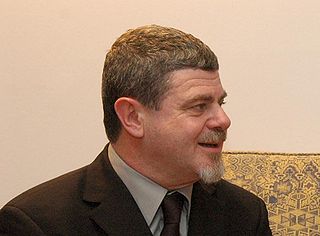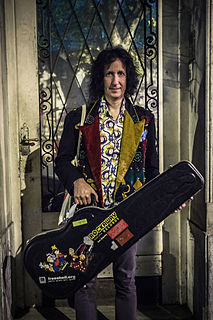A Quote by Gustavo Santaolalla
I have a very strong identity that connects me to Argentina and to Latin America, but at the same time, I have a deep connection to the music from the United States and music from Europe, too.
Related Quotes
I am very attracted to the United States. Why? Well, as a little kid from Southern Italy, not from a wealthy family, it was always my dream to go to the Big Apple. I'm not one to listen to classical music. I am very much for what is American, but I also prefer the America of the ghetto. I love the Bronx. I love hip-hop and R&B. I love electro-Latino, Latin music, that whole realm.
In Europe, you have very different situation than you do in the United States. In Europe, it's very segregated. And you have the diasporas in Belgium that I saw. And they're being radicalized because they're not assimilated with the culture. I don't think we have that same situation in the United States.
Argentina is a very interesting culture because unlike Europe and the US, they did not abandon rock and roll music, they did not turn their backs on it. It's an important part of their culture. So guitar music is an important part of their culture. So me being into rock music, I get respect working there, which wasn't happening in Europe or in the US.
In the United States, many people said you can't have folk music in the United States because you don't have any peasant class. But the funny thing was, there were literally thousands, tens of thousands, hundreds of thousands of people who loved old time fiddling, ballads, banjo tunes, blues played on the guitar, spirituals and gospel hymns. These songs and music didn't fit into any neat category of art music nor popular music nor jazz. So gradually they said well let's call it folk music.
There's a longstanding myth about the United States that is still very prevalent in Europe [despite recent developments]. Historically the "America" of this myth is an incredible human adventure and an experiment in political democracy. But at the same time, or so we're told, it's the land of extremes where the worst can happen.



































